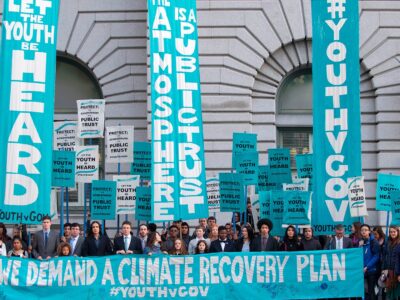Judicial Activism and Climate Change: An Unhealthy Combination
Legal Planet: Environmental Law and Policy 2024-01-04

An Oregon federal judge has convinced herself that climate change is a constitutional issue. After what promises to be a lengthy trial, Judge Aiken plans to decide whether U.S. energy policy passes constitutional muster. While I have no doubts about her sincerity and good intentions, her opinion itself shows why her courtroom is not the right place for climate policy to be made.
It’s true that climate change, if left unchecked, will pose dire risks. But that does not make it a constitutional issue.
There are issues of transcendent importance that constitutional law does not address. It’s hard to imagine anything worse than nuclear war. So shouldn’t a federal judge step in to declare nuclear war unconstitutional? The answer is no. There just wouldn’t be any basis in American law for such a ruling. And it is hard to see how a federal judge could contribute usefully to steering the world away from the risks of nuclear war.
The same is true for the issue of climate change. Readers of this blog know how seriously I take the climate issue. As important as climate change is, it is not a subject to which constitutional law speaks and is not a problem where policy should be steered by judges.
In a previous round of the lawsuit, the Ninth Circuit told her to dismiss the case because she lacked the power to require creation of a federal plan to prevent climate change. To get around that ruling, she now says she could simply declare that the government has violated the right to a livable climate. That is seemingly less of an intrusion into the policy realm.
But her opinion shows that this is simply window-dressing. After finding a constitutional violation, she says, she would then turn to a remedy phase “with a more innovative judicial role to supervise the parties in crafting a plan.” Forcing the government to “craft a plan” is precisely what the Ninth Circuit said was out of bounds.
Judge Aiken also writes approvingly of a process by which the future of climate policy would emerge from backroom negotiations between the lawyers in the case, ultimately forming a consent decree. That is no way to decide an issue of such societal importance.
It seems clear to me that, with the best of intentions, the judge has overstepped any reasonable understanding of her role. This is no time to jettison the limits on judicial power — not in an era when the rule of law and of democracy themselves are in such peril.